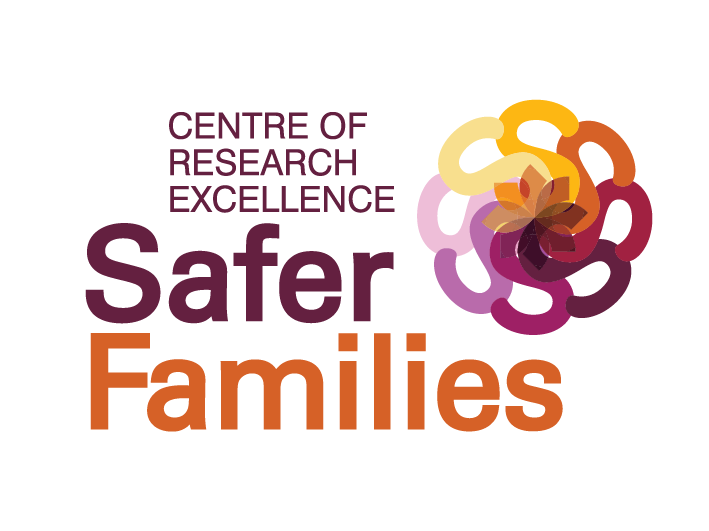Pathways to Safety
Delivery of a tailored training program to enhance the primary care response to domestic and family violence
How ready is your practice to respond to families affected by domestic and family violence?
We understand the pressures facing GPs and primary care staff and how busy services are. However, evidence shows primary care providers have a crucial role to play in addressing DFV but are often lacking the resources, support or confidence to identify and respond to families. It is estimated a full-time GP sees up to five unidentified abused women per week.
Developed and delivered by the Safer Families Centre at The University of Melbourne, Pathways to Safety aims to improve GP, nurse and whole of practice capacity to address domestic and family violence (DFV). The practice-centred training program is aimed at building the capacity of primary health care providers to more confidently and effectively recognise, respond, refer and record disclosures of DFV using a trauma and violence informed approach.
Those who choose to participate in the program will be provided with accredited virtual in-practice education, tools and support for the whole of practice to effectively identify, respond and refer individual and families experiencing DFV.
Benefits of The Readiness Program
The content and delivery is based on voices of lived experience and long-standing research. With a whole of practice approach that focuses on building capability and systems, we promote trauma and violence informed care and cultural sensitivity.
Interactive and experiential learning mechanisms are utilised which research shows is more effective for improved performances in clinical settings than didactic. By offering the program course over two virtual sessions with reinforcement activities, evidence shows it is more likely produce sustained improvements, particularly in attitudinal change compared with single event learning. Key features of the training such as linking GP peers, conducting an audit, encouraging feedback and reminders are more likely to result in long-term behaviour change for primary care staff than other strategies.
Our training program is always tailored to the local context and setting and we engage with practices individually. We also work with Primary Health Networks and tap into local resources. We employ a coordinated effort with an approach to service integration that is aligned with state and commonwealth initiatives that address domestic and family violence.
The Pathways to Safety program has been approved as an:
RACGP CPD activity total 8.5 hours - 3 hours Educational Activities (EA), 4 hours Reviewing Performance (RP) and 1.5 hours Educational Activities (EA) for the e-learning module.
ACRRM CPD activity total 8.5 hours - 3 hours Educational Activities (EA), 3 hours Reviewing Performance (RP), 1 hour Measuring Outcomes (MO) and 1.5 hours Educational Activities (EA) for the e-learning module.
Although the program has content related to Aboriginal and Torres Strait Islander peoples, we understand that all communities are different. This training program was designed with a holistic view not specifically tailored to Aboriginal medical services, Aboriginal peoples, and their respective communities. Anyone working in Aboriginal community controlled health organisations with questions or concerns can contact Brad, Aboriginal Research Support officer: brad.anderson@unimelb.edu.au
The Australian Government has renewed funding for our Pathways to Safety program during 2025 to ) to deliver ‘Pathways to Safety’ DFV training within selected PHN catchments in NSW, VIC and QLD. A list of eligible catchments is below.
If you are interested in this training, please contact us to discuss your practice’s training needs through either completing the Expression of Interest form via the registration link below or contact Safer Families Project Officer, Kitty Novy at k.novy@unimelb.edu.au
‘Pathways to Safety’ is an evidence-based educational program developed by the University of Melbourne, Safer Families Centre.
How does the program work?
All clinical and non-clinical staff within the practice or service participate in the training; flexible and delivered at times that suit participants; training delivered by skilled GP Facilitators and Family Violence Support Workers, with follow up provided.
What will you be asked to do?
Clinical staff will:
Undertake training for up to 8.5 hours per practice (3 hours facilitated)
Prepare for training through written and interactive material and a 1.5-hour e-learning course
Complete two 1.5-hour virtual sessions delivered by a GP Facilitator and Family Violence Worker
Reflect on current practice, test new tools and participate in experiential learning
Conduct a mini patient audit to support learning (for practice information only)
Complete a pre and post survey
Non-clinical staff will:
Undertake training for up to 3 hours per practice (1.5 hours faclitated)
Prepare for training through written and interactive material
Complete one 1.5-hour virtual session delivered by a GP Facilitator and Family Violence Worker
Complete a brief pre and post survey
Eligible PHN catchments
NSW: Western NSW; Western Sydney; South Eastern NSW; South Western Sydney; Northern Sydney; Murrumbidgee; North Coast
QLD: Brisbane North; Central Queensland; Wide Bay; Sunshine Coast; Gold Coast; Western Queensland; Darling Downs and West Moreton; Northern Queensland
VIC: Eastern Melbourne; South Eastern Melbourne; Gippsland; Murray



